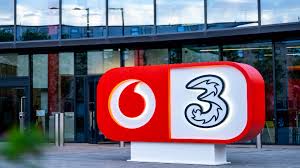Vodafone and Three UK Network Sharing Update: What You Need to Know

Introduction
The ongoing collaboration between Vodafone and Three in the UK has garnered significant attention in the telecommunications sector, especially as this partnership aims to enhance network coverage and improve service quality for customers. This network sharing agreement is particularly relevant as it comes at a time when demand for reliable mobile services is at an all-time high, especially amid the growing reliance on digital communication and the rollout of 5G services.
Details of the Partnership
The network sharing arrangement between Vodafone and Three was officially announced in 2022, with both companies agreeing to collaborate in expanding their respective networks to cover more areas efficiently. As of October 2023, significant progress has been reported as both firms integrate their infrastructure to share radio access networks.
Through this collaboration, Vodafone and Three are set to leverage each other’s network resources, aiming to deliver better network quality and reliability while reducing costs associated with deploying new setups. The partnership is expected to lead to faster implementation of next-generation services and ultimately result in improved consumer experiences.
Impact on Customers
British consumers are expected to benefit significantly from this partnership. Reports indicate that improved network coverage would mean fewer dropped calls and better data connectivity in rural and underserved urban areas. Additionally, the merger of resources could expedite the introduction of advanced technologies such as 5G, further enhancing service offerings.
Early feedback from customers indicates a more stable connection and improved speeds in areas where both networks have previously struggled. Vodafone and Three claim that over 70% of their networks are being merged, with plans to expand coverage to a much larger percentage of the UK population in the coming months.
Challenges Ahead
Despite the promising outlook, the partnership is not without its challenges. Regulatory scrutiny is one major aspect that both companies must navigate. The UK Competition and Markets Authority has expressed concerns about how this partnership could affect competition within the market, particularly regarding pricing and consumer choice.
Furthermore, technical hurdles also pose risks, as integrating two extensive networks is a complex logistical challenge that could face delays and unforeseen issues. Both companies are working diligently to mitigate these risks, ensuring that service interruptions remain minimal.
Conclusion
The Vodafone and Three network sharing initiative represents a significant step towards enhancing mobile connectivity across the UK. As both companies continue to navigate the logistics and regulatory landscape, customers can look forward to improved service quality and coverage in the near future. Should this network sharing arrangement succeed, it could set a precedent for further collaborations in the telecom sector, ultimately benefiting millions of mobile users across the UK.
You may also like

Recent Changes at Ticketmaster UK: What You Need to Know

Exploring the Importance of SWR in Telecommunications

BT’s Influence in the Telecommunications Sector
SEARCH
LAST NEWS
- Remembering Wendy Richard: The Promise to Co-Star Natalie Cassidy
- How Did Anglian Water Achieve an ‘Essentials’ Rating for Mental Health Accessibility?
- Shai Hope Leads West Indies in T20 World Cup Clash Against South Africa
- What We Know About Weston McKennie: Future at Juventus and Past at Leeds
- What We Know About the Upcoming Live Nation Antitrust Trial